Speaker & Panelist Profiles
Meet Our Speakers & Panelists
UCLA Health Data Day brings together visionary leaders, data experts, clinicians, and researchers who are shaping the future of healthcare through data-driven innovation. Explore the profiles of our distinguished speakers and panelists to learn more about their expertise, current work, and contributions to advancing analytics, technology, and patient care.
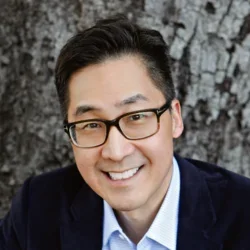
David C. Rhew, MD
Global Chief Medical Officer (CMO) and VP of Healthcare for Microsoft
As Global Chief Medical Officer & VP of Healthcare, David has served as Microsoft’s International Coordinator for the Pandemic Response, working with WHO to develop their World Health Data Hub, CDC to standup their vaccine data lake, and U.S. states to roll-out COVID-19 vaccines.
He is Adjunct Professor at Stanford University; holds six U.S. technology patents that enable authoring, mapping, and integration of clinical decision support into electronic health records; and has been recognized as one of the 100 most influential persons by Modern Healthcare.
He has served as CMO for Samsung and Zynx Health and has sat on National Quality Forum’s Executive CSAC Board. He is Chair-emeritus for Consumer Technology Association’s Health Technology Board and serves on the following Executive/Advisory Boards: AdvaMed’s Digital Health, NESTcc (medical device advisory for FDA, CMS, & NIH), Cedars-Sinai Medical Center, M42 (UAE), and AI advisor to the city of New York.

Piotr Slomka, PhD
Director of Innovation in Imaging and a Professor of Medicine and Cardiology at Cedars-Sinai's Division of Artificial Intelligence in Medicine
His lab is at the forefront of developing advanced AI and image processing methods to transform cardiac imaging. By leveraging a wide range of imaging modalities, Dr. Slomka's team aims to automate analyses, enhance diagnostic accuracy for cardiovascular diseases, and predict critical events such as heart attacks through the integration of computer science innovations with clinical insights.
He has a sustained track record of scientific productivity (over 550 peer-reviewed publications and book chapters to date), which has led to significant innovations now applied in research and clinical settings globally. Dr. Slomka spearheaded two largest cardiac imaging registries for SPECT and PET/CT to date (with over 50,000 cases) through multi-institutional collaboration involving more than 20 sites.
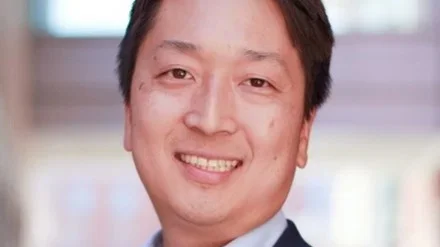
William Hsu, PhD
Professor of Radiological Sciences and Bioengineering at the University of California, Los Angeles
He is a biomedical informatician focused on maximizing the utility of multimodal data to detect and treat cancers earlier. His lab harnesses artificial intelligence/machine learning techniques to integrate and transform multimodal data into actionable knowledge.
He serves as principal investigator on grants from the National Institutes of Health, the Agency for Healthcare Research and Quality, and the V Foundation. He is a deputy editor of Radiology: Artificial Intelligence and serves on the Journal of the American Medical Informatics Association editorial board.
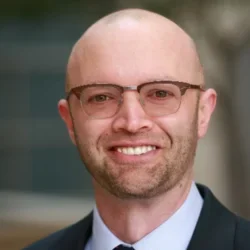
Corey Arnold, PhD
Professor and Vice Chair of Research, Radiology, UCLA
Professor, Pathology, Bioengineering, and Electrical & Computer Engineering, UCLA
Prof Arnold is the Vice Chair of Research in the UCLA Department of Radiological Sciences and holds joint appointments in the Departments of Pathology & Laboratory Medicine, Electrical & Computer Engineering, and Bioengineering. He leads the Biomedical AI Research (BAIR) Lab, a team that uses machine learning to improve healthcare. He completed his undergraduate training at the University of Wisconsin, Madison, and earned his PhD at UCLA.
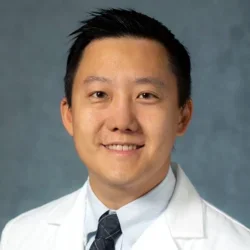
David Ouyang, MD
Research Scientist at the Kaiser Permanente Northern California Division of Research
Non-Invasive Cardiologist and Echocardiographer at Kaiser Permanente Santa Clara Medical Center
As a physician-scientist and statistician with focus on cardiology and cardiovascular imaging, I work on applications of deep learning, computer vision, and the statistical analysis of large datasets within cardiovascular medicine. As an echocardiographer, I work on applying deep learning for precision phenotyping in cardiac ultrasound and the deployment and clinical trials of AI models. I majored in statistics at Rice University, obtained my MD at UCSF, and received post-graduate medical education in internal medicine, cardiology, and a postdoc in computer science and biomedical data science at Stanford University. Our group works on multi-modal datasets, linking EHR, ECG, echo, and MRI data for a broad perspective on cardiovascular disease and have diverse backgrounds (ranging from physics, mechanical engineering, computer science to cardiology, anesthesia, and internal medicine).
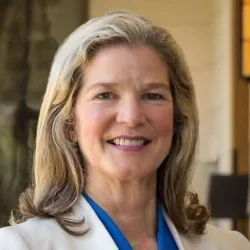
Joann Elmore, MD, MPH
Rosalinde and Arthur Gilbert Foundation Endowed Chair in Health Care Delivery
Professor of Medicine at the David Geffen School of Medicine at UCLA
Professor of Health Policy and Management at the UCLA Fielding School of Public Health
Director of the UCLA National Clinician Scholars Program
She is an established investigator and national leader in the fields of epidemiology and cancer research. Her research portfolio spans cancer screening (e.g., skin and breast), diagnostic accuracy, physician variability, and AI/machine learning (computer image analyses and diagnostic aid tools for skin and breast pathology), and incorporates an important clinical perspective to the evaluation of medical screening. Her pivotal research in cancer screening contains notable, and practice-changing, publications in the NEJM, JAMA, and BMJ. Her research support includes continuous NIH funding for over 25 years and a long history of backing from major foundations, such as the Melanoma Research Alliance. Dr. Elmore previously held faculty and leadership positions at the University of Washington, Fred Hutchinson Cancer Research Center, Group Health Research Institute, Yale University and the Robert Wood Johnson Foundation Clinical Scholars program at Yale and the University of Washington. Dr. Elmore is board certified in internal medicine and serves on many national and international committees, as well as serving as Editor in Chief for Adult Primary Care at UpToDate.
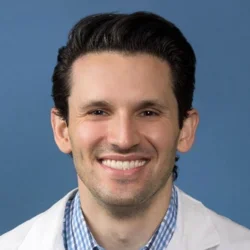
Richard Leuchter, MD
Hospitalist-Researcher and UCLA Faculty Member
Dr. Leuchter joined UCLA Faculty in July 2022 after completing an NIH research training year in applied mathematics and machine learning. His research focuses on identifying low-value medical care (particularly in the acute care setting) and implementing interventions to reduce it. Dr. Leuchter has also obtained formal training in medical informatics and draws on this in his research by integrating his interventions into the Electronic Health Record (EHR) and leveraging principles of behavioral psychology to maximize their impact. His work has received numerous awards, coverage in the Los Angeles Times, and been published in journals such as the New England Journal of Medicine, Proceedings of the National Academy of Science, and Journal of the American Medical Informatics Association. Currently, he has an NHLBI K award to design ML models that can predict unnecessary hospitalizations, which form the basis for a hospital avoidance clinic (called Next Day Clinic) he launched and is evaluating in a clinical trial. Dr. Leuchter is a practicing hospitalist primarily at UCLA Health and Olive View, and holds a joint appointment at the West Los Angeles VA. He also serves as Co-Director of the UCLA Nudge Unit and Assistant Director of UCLA Healthcare Value Analytics and Solutions (UVAS).
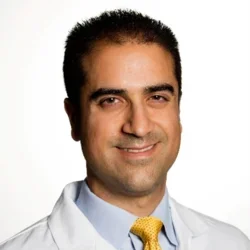
John N. Mafi, MD, MPH
Associate Professor of Medicine in the Division of General Internal Medicine and Health Services Research at the David Geffen School of Medicine at UCLA
He practices primary care and teaches inpatient geriatrics at David Geffen School of Medicine at UCLA. He also holds an appointment as an Affiliated Adjunct Physician Policy Researcher in Health Policy at RAND. Dr. Mafi completed his undergraduate degree at Northwestern University, medical school at Case Western Reserve University, and internal medicine residency at Beth Israel Deaconess Medical Center, where he later served as Chief Medical Resident. He then completed the Harvard Medical School Fellowship in General Internal Medicine and Primary Care and earned his MPH at the Harvard T.H. Chan School of Public Health. His research focuses on optimizing the value of health care, advancing innovation, and improving care for older adults, including NIH-funded (NIA R01, K76) initiatives to measure and improve the value of care delivered to older Americans. With over 50 peer-reviewed publications, Dr. Mafi’s work has informed Medicare telemedicine policy, actuarial coverage decisions, and cost protections for high-cost drugs for low-income Medicare beneficiaries. He co-directs the UCLA Healthcare Value and Analytics Solutions (UVAS) Consortium, previously chaired the Society of General Internal Medicine (SGIM) Research Committee, and has been honored with multiple national awards, including the Annals of Internal Medicine Outstanding Junior Investigator Award and the SGIM Best Published Research Paper Award (twice). Most recently, Dr. Mafi partnered with UCLA Health IT leadership to co-lead the world’s first randomized, head-to-head trial of two AI-powered ambient medical scribe technologies, reflecting his commitment to pioneering innovative solutions in health care.
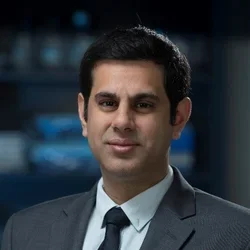
Shyam Natarajan, PhD
Assistant Adjunct Professor of Urology and Surgery at UCLA
His research and career focus is on fundamentally transforming cancer care through improved personalization. He co-founded and leads Avenda Health, a healthcare AI company that brings superhuman abilities to surgeons and oncologists leading to superior clinical outcomes. Previously, he led an NIH-funded lab within the Center for Advanced Surgical and Interventional Technology (CASIT) focusing on image-guided cancer interventions, which translated targeted prostate biopsy from benchtop to now standard of care. He has a PhD in Biomedical Engineering with a background in embedded systems, medical imaging, and machine learning.
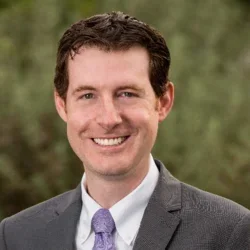
Michael Pfeffer, MD
Chief Information and Digital Officer and Associate Dean for Stanford Health Care and Stanford University School of Medicine
Michael oversees Technology and Digital Solutions, responsible for providing world class technology solutions to Stanford Health Care and the School of Medicine, enabling new opportunities for groundbreaking research, teaching, and compassionate care across two hospitals and over 150 clinics. Michael also serves as a Clinical Professor in the Department of Medicine and Division of Hospital Medicine with a joint appointment in the center for Biomedical Research (BMIR). Prior to joining Stanford Medicine, Michael served as the Assistant Vice Chancellor and Chief Information Officer for UCLA Health Sciences, and the inaugural Chief Medical Informatics Officer before becoming CIO. Michael graduated from Brown University with a degree in chemical engineering. He received his medical degree from Cornell University and is board certified in Internal Medicine and Clinical Informatics.
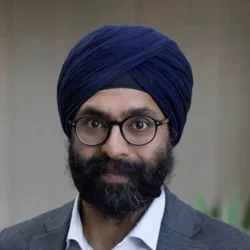
Karandeep Sing, MD, MMSc
Chief Health AI Officer for UC San Diego Health
Joan and Irwin Jacobs Chancellor’s Endowed Chair and Associate Professor of Medicine in Biomedical Informatics at UC San Diego
In these roles, Dr. Singh oversees AI strategy and governance for the health system and leads AI initiatives within the Jacobs Center for Health Innovation.
He completed his internal medicine residency at UCLA Medical Center, where he served as chief resident, and a nephrology fellowship in the combined Brigham and Women’s Hospital and Massachusetts General Hospital program. He completed his medical education at the University of Michigan Medical School and holds a master’s degree in biomedical informatics from Harvard Medical School.
Prior to coming to UC San Diego, Dr. Singh was an associate professor at the University of Michigan, where he served as the Associate Chief Medical Information Officer of Artificial Intelligence at Michigan Medicine. His research focuses on addressing translational issues related to bringing AI into clinical practice, including transportability, generalizability, dataset shift, and clinical and operational outcomes. His research lab performed the first independent evaluations of several proprietary clinical prediction models, including the Epic Deterioration Index and the Epic Sepsis Model. His research has been cited in several policy documents, including the White House’s Blueprint for an Artificial Intelligence Bill of Rights, U.S. Department of Health and Human Services, U.S. Government Accountability Office, National Academy of Medicine, the UK Government Regulatory Horizons Council, New Zealand Ministry of Health, and in New York City’s Artificial Intelligence Strategy.
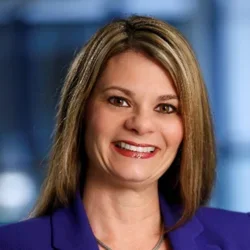
Betty Jo Rocchio, DNP, RN, CRNA, CENP, EBP-C
Executive Vice President and Chief Nurse Executive
Betty Jo has more than 30 years of experience in nursing, joining Advocate Health in November 2024. Her previous experience includes nursing leadership roles at Mercy, a well-known nonprofit Catholic health care organization headquartered in St. Louis, Missouri, and in the Mount Carmel Health System in Columbus, Ohio. Betty Jo has a passion and drive for leveraging technology and data analytics to support nursing and clinical teams to enhance patient care outcomes. Betty Jo serves on the Medtronic Chief Nurse Advisory Board, the Mytonomy Advisory Board and the UKG Chief Nurse Advisory Board. She is also an accomplished speaker and has written publications in support of nursing practice and operations, technology, supply chain and analytics.